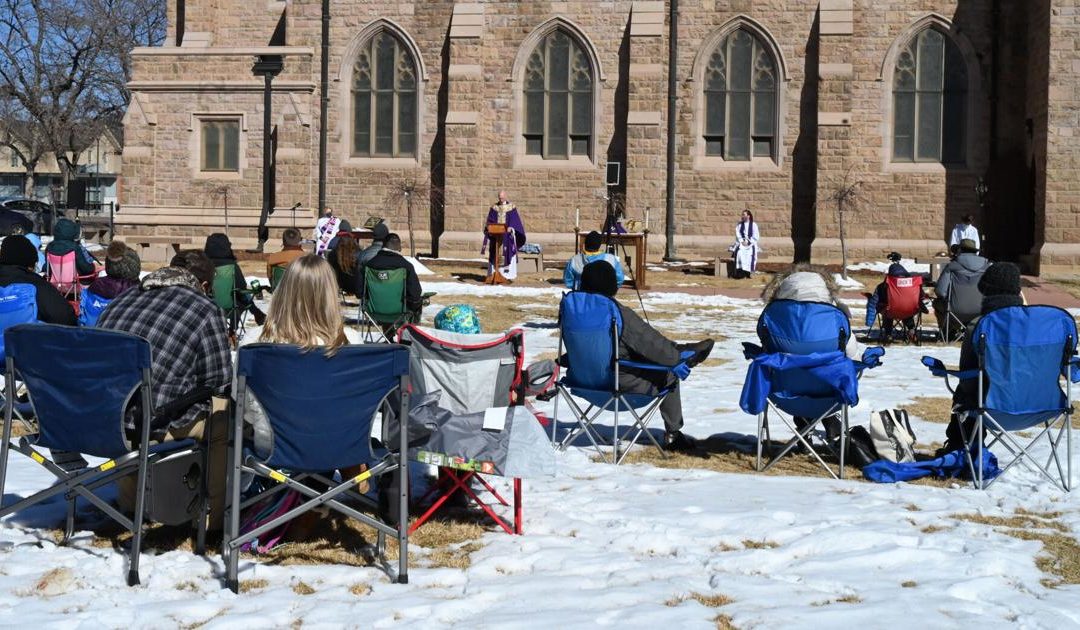Two Colorado churches that claimed COVID-19 restrictions violated their religious rights and won a U.S. District Court ruling on mask mandates and capacity restrictions last year won’t have a chance at a second go-round.
Pastors of Denver Bible Church in Wheat Ridge and Community Baptist Church in Brighton on Tuesday lost a request for the U.S. Supreme Court to consider their challenge of Colorado laws governing disasters, including the coronavirus pandemic.
Supreme Court Justice Neil Gorsuch, who has jurisdiction over urgent filings from Colorado and nearby states, denied referring the application to the rest of the court for deliberation.
Because the case is continuing — the churches are awaiting on a brief from the 10th Circuit Court of Appeals, according to Denver litigation attorney Rebecca Messall of Messall Law — the plaintiffs have no comment on the decision, she said.
In their challenge to the Colorado Disaster Emergency Act, which Gov. Jared Polis used as the basis for COVID-19 restrictions, pastors of the churches argued houses of worship were unfairly limited in their ability to engage in free exercise of religion. The claim cited an April 9 ruling in which U.S. Supreme Court ordered California to lift enforcing COVID-19 restrictions on private gatherings in the applicants’ at-home religious exercise.
The Denver-area churches’ case claims Polis’s executive orders pertaining to COVID-19 violated the Colorado constitution and the Disaster Emergency Act.
Polis had urged Gorsuch to reject the request, according to court documents, with his attorneys stating the matter is now moot — neither necessary nor warranted — because nearly all state COVID-19 restrictions have been lifted.
Colorado eased capacity limits on churches in December, deeming houses of worship as among the state’s “critical businesses,” following several legal challenges, including a favorable ruling from a U.S. District Court judge last fall on a lawsuit from Denver Bible Church and Community Baptist Church.
The lawsuit claimed COVID constraints on houses of worship were unfairly stricter than some entities that were allowed to operate, such as liquor stores and marijuana dispensaries.
The U.S. Supreme Court in December sided with a different church in Colorado, High Plains Harvest Church in Eaton, as well as a rabbi and a clergyman in New Jersey, granting exemption from state public health orders that were more restrictive on houses of worship than other businesses.
Polis had asked the Supreme Court to drop the case, saying that “High Plains already has the relief it seeks.”
The current challenge — to overturn the state’s disaster act — would cause severe hardship to the state, Polis’ attorneys argued in court documents.
The two churches maintained the disaster act “remains a future threat” that could lead to discrimination against religious exercise.
Analysts speculated that rejection came because the request for relief was too broad, because the state statute encompasses all emergency disasters, such as fires, floods and drought.
This content was originally published here.

